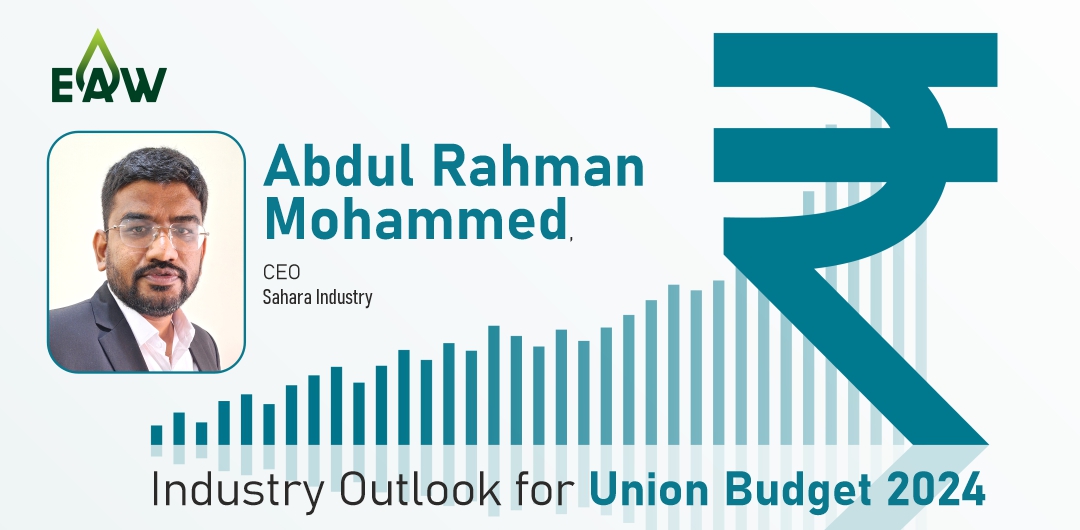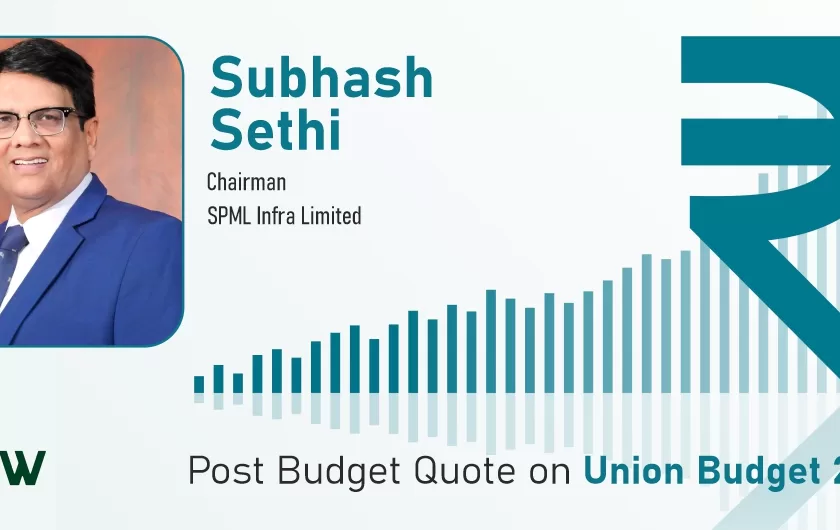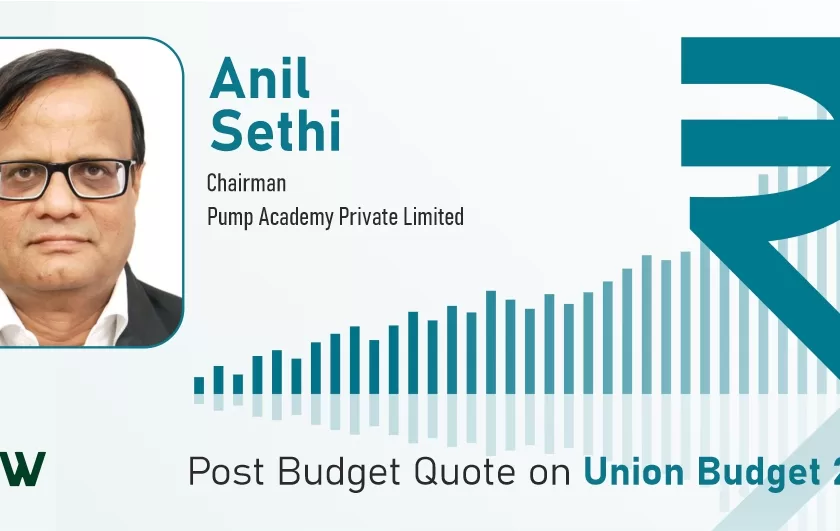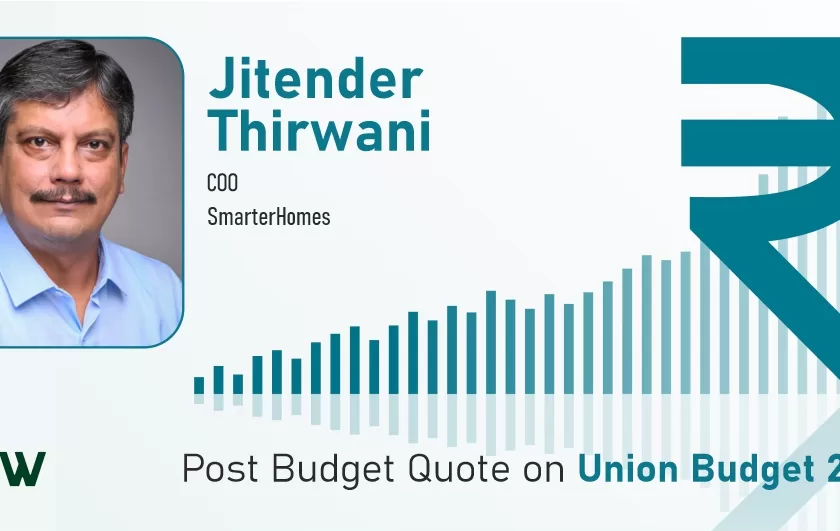By Abdul Rahman Mohammed, CEO, Sahara Industry
Adequate quantity of safe quality water is a fundamental human right, yet it is not assured; it requires active efforts to procure, store, use and manage. Access to clean water is essential for sustaining life, promoting health, and ensuring well-being of nations. Therefore, it is our collective responsibility to work towards guaranteeing this basic human need, implementing sustainable water management practices, optimizing resources and fostering equitable access to this vital resource. As water is vital for human survival, similarly, it is essential for all economic activities leading to nation’s economic growth and existence.
The water treatment industry in India is in a phase of substantial growth, with a Compound Annual Growth Rate (CAGR) of 9.10%, projected to reach USD 5.6 billion (Rs. 46,480 crore) by 2030. This growth is attributed to various government initiatives, including the Atal Mission for Rejuvenation and Urban Transformation (AMRUT), National Mission for Clean Ganga (NMCG), Jal Jeevan Mission (JJM), and Community Drinking Water Schemes, which collectively contribute to the expansion of the Indian water and wastewater treatment market. The interim budget for 2024, with a focus on development and the ambitious goal of achieving a $30 trillion economy by 2047 (the centenary year of India’s independence), has set the agenda for a “Viksit Bharat” (Developed India).
The substantial allotment of Rs. 11,11,111 crore for infrastructure development represents an 11.1 per cent increase compared to the previous year. This allocation, amounting to 3.4 per cent of the GDP, underscores the government’s targeted strategy to construct resilient infrastructure encompassing railways, metro rail, roads, airports, waterways, urban development, as well as water and sanitation.
Under the interim budget 2024-25, the Ministry of Jal Shakti (MoJS) has received an allocation of Rs. 98,418 crore. Out of this, the share of the Jal Jeevan Mission, which aims to provide safe and adequate drinking water by 2024 to all households in rural India, is Rs. 69,926 crore. Out of the 19.26 crore rural households in the country, 14.22 crore have already been provided tap water connection under the mission till now.
The Department of Water Resources, River Development and Ganga Rejuvenation has been allocated Rs. 21,028 crore for 2024-25, a 7.74 per cent increase from 2023-24. It was Rs. 19,516 crore in the last year’s budget.
The National Ganga Plan, which comes under the department for implementing schemes and projects for the Ganga River and its tributaries, has been allocated Rs. 3,500 crore. The Central Water Commission has been allocated Rs. 391 crore, the Central Water and Power Research Station Rs. 75 crore and the Central Ground Water Board Rs. 310 crore. The Pradhan Mantri Krishi Sinchai Yojna has been allocated Rs. 11,391 crore for 2024-25, a 29.7 per cent increase from last year.
The Rural Development Ministry’s budget to Rs. 1.77 lakh crore for 2024-25 is increased by around 12 per cent from last year’s Rs. 1.57 lakh crore. The Swachh Bharat Mission (Rural) got Rs. 7,192 crore for 2024-25. The same amount was allocated to it in 2023-24 as well.
The substantial allocation for water supply projects across various schemes is highly appreciated, and at Sahara Industry, we eagerly anticipate contributing to the efforts to ensure clean and safe water for both drinking and industrial purposes. Leveraging our extensive experience and an innovative, technologically advanced NDF certified product range, Sahara Industry, along with its parent organization Anu Advance Composite Products Pvt. Ltd., is poised to lead in delivering advanced water and wastewater treatment solutions in adherence to international standards. We are pleased that the Government of India is demonstrating a strong commitment to the water sector by allocating a substantial budget for its development.






